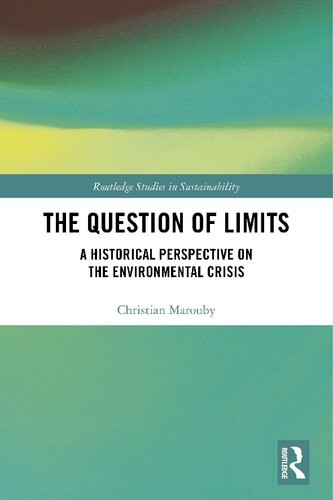

Most ebook files are in PDF format, so you can easily read them using various software such as Foxit Reader or directly on the Google Chrome browser.
Some ebook files are released by publishers in other formats such as .awz, .mobi, .epub, .fb2, etc. You may need to install specific software to read these formats on mobile/PC, such as Calibre.
Please read the tutorial at this link. https://ebooknice.com/page/post?id=faq
We offer FREE conversion to the popular formats you request; however, this may take some time. Therefore, right after payment, please email us, and we will try to provide the service as quickly as possible.
For some exceptional file formats or broken links (if any), please refrain from opening any disputes. Instead, email us first, and we will try to assist within a maximum of 6 hours.
EbookNice Team

Status:
Available0.0
0 reviewsWe have forgotten how to think about limits. Most philosophical approaches to the environment have focused primarily on the value of the natural world, the status of anthropocentrism and the Anthropocene, and the largely ethical questions of our impact on the world. While fully acknowledging these concerns, this book emphasizes the centrality of the confrontation between the imperative of growth that has been present since the Enlightenment and our belated rediscovery of limits. The expression "Limits to Growth", the title of a famous book from 1972 by Donella H. Meadows et al., may have passed into a common discourse, yet the notion of limits itself remains insufficiently theorized, or even reflected upon, in the current movement of environmental advocacy. Sometimes it even seems as if there is an effort to avoid it.
This book argues that, on the contrary, we can only resolve the present global challenges by confronting the question of limits and making it central to our reflection. This entails discussing the long history of thinking about limits in which Malthus is the most infamous figure, but which also includes such major participants as John Stuart Mill and Karl Marx. Ultimately, The Question of Limits contends that the value of embracing limits extends beyond the environment and offers the potential to become a transformative social good.
The Question of Limits will be of great interest to students and scholars working at the intersection of environmental studies, economics, intellectual history and philosophy.